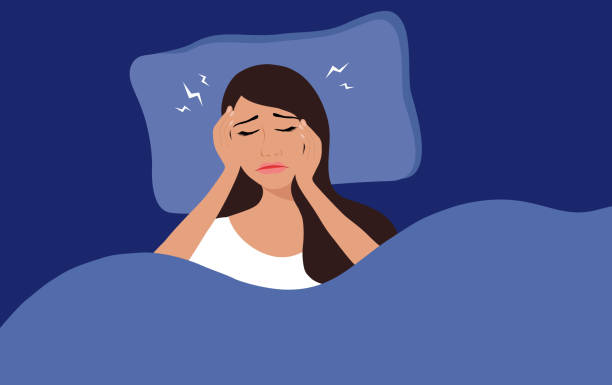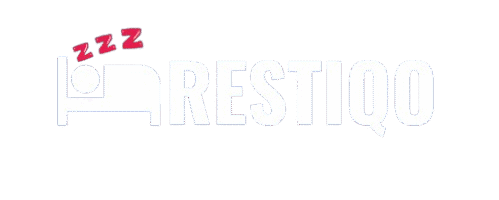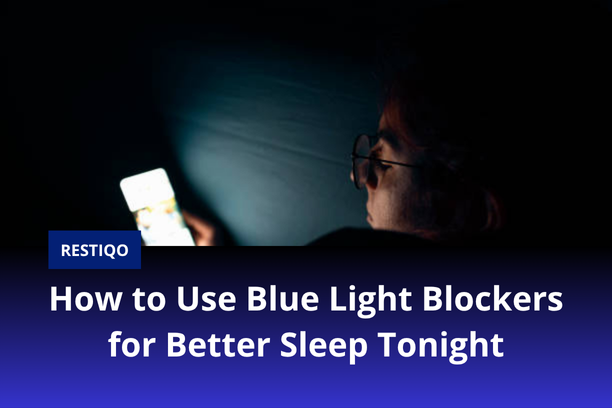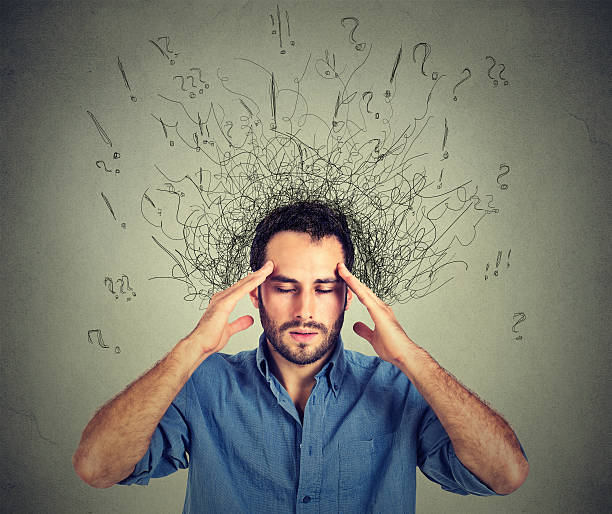
Mental clarity isn’t some mystical state reserved for monks meditating on mountaintops. It’s the sharpness that lets you make good decisions before your second cup of coffee. It’s the absence of that groggy mental fog that makes you forget why you walked into a room. And, most importantly, it’s the secret sauce behind productivity, focus, and emotional resilience.
But here’s the reality check: if your sleep sucks, your morning is already toast.
Poor sleep turns your brain into mashed potatoes. The deep thinking, creativity, focus—all the stuff that keeps you functioning like a well-oiled machine—gets wiped out when your brain doesn’t get a proper nightly reboot. This reboot happens through stages of sleep that clean out the mental junk, literally detoxing your brain and resetting your focus for the day ahead.
This article breaks down exactly how that works and why dialing in your sleep isn’t optional if you want mornings that don’t suck.
Let’s pull back the curtain on what’s really behind mental clarity and why it always starts with better sleep.
Table of Contents
What Is Mental Clarity and Why Does It Matter?
Mental clarity is your brain’s version of a clean desktop: no clutter, no lag, and no mental pop-ups interrupting your focus.
When your mind is clear, you make faster decisions, process complex info with ease, and stay cool under pressure. It’s the cognitive equivalent of a well-tuned sports car—fast, responsive, and smooth.
Signs of Mental Clarity
You don’t need a PhD in neuroscience to know when your mind is firing on all cylinders. Common signs include:
- You remember things without digging through mental cobwebs
- You can focus for long stretches without zoning out
- You’re quick to process, evaluate, and respond
- You feel mentally present and grounded
Cognitive Benefits in Daily Life
Mental clarity isn’t just for productivity nerds or CEOs. It touches every area of your life:
- Work: Quicker problem-solving, fewer mistakes, and better leadership decisions
- Relationships: Less reactive, more thoughtful responses
- Learning: Absorbing new info without feeling overwhelmed
- Health: Making smarter food, fitness, and wellness choices
How It Impacts Decision-Making
When your brain is fogged, your decisions turn into dice rolls.
Mental clarity boosts executive function — the brain’s CEO function. This includes planning, emotional regulation, task switching, and long-term thinking. Without clarity, you default to short-term comfort (snoozing the alarm, skipping workouts, doomscrolling) instead of long-term gain.
Key Benefits of Mental Clarity
- Sharper memory
- Faster processing
- Better emotional regulation
- Improved decision-making
- Greater focus and presence
The Brain on Sleep: What Happens Overnight?
Sleep is when your brain takes out the trash, files important stuff, and reboots its systems.
If you’re skipping or disrupting this process, no productivity hack or green smoothie is going to save you.
Deep Sleep and Brain Repair
During deep sleep (also known as slow-wave sleep), your body shifts into full repair mode. The brain isn’t just “resting”—it’s cleaning house.
- Neurons shrink to allow cerebrospinal fluid to flush out toxins—a process called brain detoxification
- Muscle tissues repair, and cells regenerate
- Growth hormone is released, helping the body and brain recover
This stage is critical for mental resilience and reducing mental fatigue.
REM Sleep and Emotional Processing
REM (Rapid Eye Movement) sleep kicks in after deep sleep and is the playground of your dreaming brain. But it’s not just for surreal adventures—REM is where your brain processes emotions, consolidates memories, and boosts neuroplasticity.
Key roles of REM sleep:
- Improves creativity and problem-solving
- Supports memory consolidation
- Helps regulate mood and emotional triggers
- Enhances learning
Sleep Cycles and Brain Detox
Each night, you cycle through stages of light, deep, and REM sleep multiple times. Miss one cycle and the system stutters. Miss several, and things fall apart.
One vital function during these cycles is the glymphatic system, which acts like your brain’s sanitation crew. It flushes out beta-amyloid, the plaque that’s linked to Alzheimer’s. Think of it as your brain’s nightly pressure wash.
Overnight Brain Functions:
- Waste clearance via glymphatic system
- Cortisol reduction
- Memory consolidation
- Emotional recalibration
- Learning and neuroplasticity support
How Poor Sleep Sabotages Mental Clarity
If mental clarity is your brain’s operating system, poor sleep is the virus that slows everything down.
Lack of sleep doesn’t just leave you tired—it messes with hormones, brain function, and emotional stability.
Sleep Deprivation & Brain Fog
Brain fog isn’t just a buzzword—it’s what happens when your brain is low on energy and high on noise.
- Reduced oxygen flow to the brain
- Slower neural communication
- Impaired attention span
- Poor memory recall
- Decreased reaction time
One study from the NIH found that even a single night of poor sleep can reduce cognitive performance the next day by up to 40%.
Increased Stress Hormones
When you’re sleep-deprived, your body cranks out cortisol like a broken vending machine. This stress hormone wreaks havoc on your nervous system, leading to:
- Mood swings
- Anxiety
- Impulsive decision-making
- Inflammation
Cortisol also blocks melatonin, your sleep hormone—turning your bad night into a vicious cycle of sleeplessness.
Disrupted Circadian Rhythm
Your circadian rhythm is your internal clock. It tells you when to sleep, wake, eat, and think. When it’s off, everything goes sideways.
- Morning grogginess
- Poor alertness during peak hours
- Trouble falling asleep at night
- Irregular energy crashes
Poor Sleep Consequences:
- Mood swings
- Attention lapses
- Morning grogginess
- Lower cognitive performance
- Impaired decision-making
Sleep’s Role in a Productive Morning Routine
Your morning routine isn’t what sets you up for success—your sleep is.
You don’t “start fresh” when you wake up. You start with whatever quality of sleep you had the night before. The better your sleep, the more likely you’ll wake up clear-headed, emotionally balanced, and ready to take on the day without needing three alarms and a caffeine IV drip.
Wake-Up Energy & Focus
Ever wake up after a full night’s sleep and still feel like you’ve been hit by a bus? That’s not just aging — it’s poor sleep quality.
True wake-up energy comes from completing full sleep cycles. Disrupt them and your brain skips the reset process.
Here’s what happens when sleep quality is on point:
- You naturally wake up near your cortisol peak, your body’s built-in energy boost
- Your alpha brain waves become more active — these are associated with calm, focused awareness
- Your attention span, memory recall, and processing speed all shoot up
Morning Mood & Clarity
Sleep directly influences how you feel when you wake up and how you treat people before coffee.
Without restorative sleep:
- You’re irritable
- Emotionally reactive
- Prone to negative thinking
- Mentally scattered
But with high-quality sleep, your emotional regulation improves, your mindset is more optimistic, and your mental clarity kicks in early.
Biological Timing for Tasks
If you’ve ever tried to write a report at 7 AM and failed miserably, you’re not alone. Your brain runs on a clock and aligning your tasks with your biological rhythm matters more than forcing productivity.
Biohacking your morning routine:
- 6–8 AM: Cortisol levels rise — prime time for physical activity
- 8–10 AM: Brain reaches peak alertness — best for complex thinking
- 10–12 PM: Creative thinking surges — ideal for brainstorming or problem-solving
Ignore your rhythm and you’re just pushing against biology.
Morning Success Hinges on Sleep:
- Avoid caffeine overload (don’t chase energy that sleep should’ve given you)
- Leverage natural cortisol peak instead of snoozing through it
- Sync habits with brain’s alertness cycle
- Get natural sunlight early to regulate circadian rhythm
Sleep Hygiene Tips for Better Mental Clarity
Better mornings start the night before—and most people are wrecking theirs without even knowing it.
Sleep hygiene isn’t about incense and sleepytime tea. It’s about creating a consistent environment and set of behaviors that prime your body and brain for deep, restorative sleep.
Create a Consistent Bedtime
Your brain loves routine. Go to bed at 11 one night, 2 AM the next, and you’re sending your circadian rhythm into chaos.
Why consistency matters:
- Regulates melatonin production
- Improves sleep depth and duration
- Enhances REM and deep sleep ratios
- Reduces sleep latency (time it takes to fall asleep)
Pro tip: Set an alarm to start winding down not just to wake up.
Limit Blue Light Exposure
Phones, tablets, laptops — these are not bedtime buddies.
Blue light messes with melatonin production, delaying sleep onset and shortening total sleep time. And don’t think Night Mode saves you. It’s better, but not bulletproof.
Fix it:
- No screens 60–90 minutes before bed
- Use blue light blockers if you must use devices
- Switch to physical books or low-light reading devices (like Kindle Paperwhite)
Use Wind-Down Rituals
The brain doesn’t slam into sleep mode like a laptop lid snapping shut. It needs a transition — a clear signal that it’s time to shut off.
Effective rituals include:
- Journaling: Offload thoughts, reduce rumination
- Stretching or breathwork: Activate the parasympathetic nervous system
- Digital detox: Disconnect from mental noise
- Chamomile or magnesium: Natural relaxation aids
Sleep Hygiene Checklist:
- Consistent sleep/wake time
- No screens before bed
- Cool, dark bedroom
- Minimal noise or use white noise
- Avoid alcohol and caffeine late in the day
- Create a bedtime ritual to signal sleep onset
Optimizing Morning Routines for Sustained Mental Clarity
What you do in the first hour after waking can make or break your entire day.
You’ve probably seen a hundred articles preaching 27-step morning routines, but most of them forget one thing: your brain is still booting up.
Instead of jumping into cold showers or speed journaling like a lunatic, ease your brain into clarity with a routine that respects biology.
Mindful Wake-Up Habits
Start slow. Don’t yank your brain out of sleep mode with chaos.
Best wake-up practices:
- No phone for 30–60 minutes
- Let natural light hit your face—this cues your circadian rhythm
- Try a brief mindfulness or gratitude moment (not forced, just grounded)
- Avoid decision-making right away—streamline with habits like pre-set clothes or meals
Nutrition That Fuels Focus
Skip the sugar bombs. Your brain needs steady fuel, not blood sugar rollercoasters.
Great breakfast combos for mental clarity:
- Healthy fats: Avocados, nuts, seeds (fuel brain function)
- Complex carbs: Oats, sweet potatoes (provide sustained energy)
- Protein: Eggs, Greek yogurt, nut butters (support neurotransmitters like dopamine and serotonin)
And yes, hydrate before anything else. Brain fog often starts with dehydration.
Morning Movement or Light Exercise
Exercise doesn’t need to be intense to wake up your brain.
Even 10 minutes of movement can:
- Boost oxygen to the brain
- Increase endorphins
- Trigger brain-derived neurotrophic factor (BDNF)—a protein that sharpens learning and memory
Best options:
- Stretching or yoga
- Light cardio (walk, jump rope, dance like an idiot)
- Short bodyweight circuits
Morning Routine Musts:
- Drink water first
- Get natural light exposure
- Move your body gently
- Eat a balanced, brain-fueling meal
- Avoid doomscrolling or emails for at least 30 minutes
Conclusion
Mental clarity is a biological necessity if you want to function at your peak. And the path to clarity? It starts the night before.
Forget trying to “power through” groggy mornings with double espressos and frantic to-do lists. If your brain didn’t reset overnight, you’re starting the day in the red.
Deep sleep, REM cycles, and smart sleep hygiene lay the foundation for mornings that don’t just feel good — they work. Pair that with a mindful morning routine, and you’ve built yourself a system that delivers daily clarity without the burnout.
FAQ: Mental Clarity and Sleep
1. How does sleep improve mental clarity?
Sleep clears out brain waste, balances hormones, and consolidates memory. REM and deep sleep both play critical roles in resetting cognitive function.
2. Can poor sleep cause brain fog in the morning?
Yes. Disrupted or insufficient sleep impairs focus, decision-making, and emotional regulation all of which lead to morning mental fog.
3. What is the ideal amount of sleep for mental sharpness?
Most adults need 7–9 hours of quality sleep. Prioritizing both deep and REM sleep is more important than just clocking hours.
4. What sleep habits boost productivity in the morning?
Stick to a consistent bedtime, avoid screens before bed, create a wind-down ritual, and expose yourself to natural light first thing in the morning.
5. How can I structure my morning for maximum clarity?
Hydrate, move your body, get some sunlight, and avoid overstimulation. Skip the chaos and build your morning around gentle, grounding rituals.





